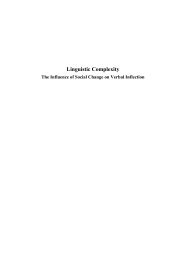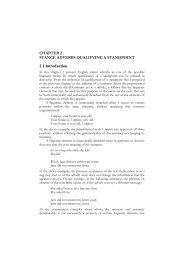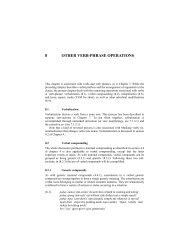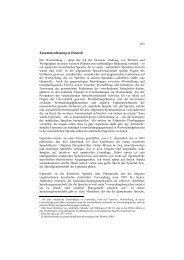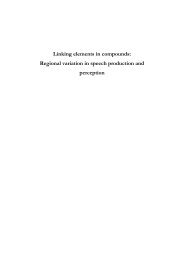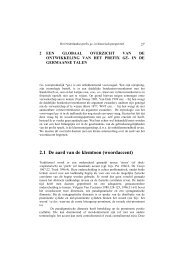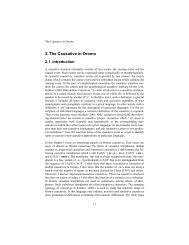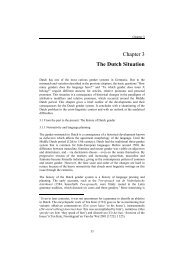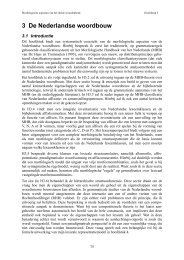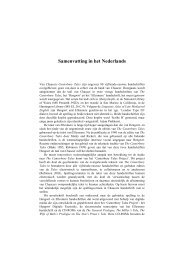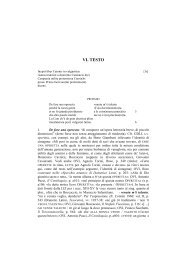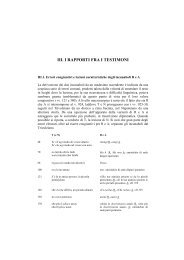Chapter 9 - LOT publications
Chapter 9 - LOT publications
Chapter 9 - LOT publications
Create successful ePaper yourself
Turn your PDF publications into a flip-book with our unique Google optimized e-Paper software.
Accounts of SLI in Afrikaans<br />
phonological form of Afrikaans personal and possessive pronouns<br />
cannot be derived in terms of a default grammatical rule, all children<br />
need to memorise the correct phonological form of these pronouns.<br />
The fourth prediction relates to the phonological realisation of tense. As<br />
mentioned in section 3.3.1.5, tense is not phonologically indicated on<br />
(the vast majority of) main verbs in Afrikaans. The present tense form of<br />
the main verb is the same as the infinitival form. 169 Past tense can be<br />
indicated by using any of the following:<br />
(i) The temporal auxiliary het and the past participial form of the main<br />
(ii)<br />
268<br />
verb, as can be seen in (183) below.<br />
The past tense form of the modal auxiliary/-ies and the infinitival<br />
form of the main verb, as in sou slaap ‘would have slept’ and sou<br />
moes kon slaap ‘would have had to be able to sleep’.<br />
(iii) The past tense form of the modal auxiliary/-ies, the temporal<br />
auxiliary het and the past participial form of the main verb, as in sou<br />
geslaap het ‘would have slept’ and sou moes kon geslaap het ‘would have<br />
had to be able to sleep’.<br />
(iv) The present tense form of the modal auxiliary, the temporal<br />
auxiliary het and the past participial form of the main verb, as in sal<br />
geslaap het ‘would have slept’ and the less common sal moet kan<br />
geslaap het ‘would have had to be able to sleep’.<br />
(v)<br />
The present tense form of the main verb, which is phonologically<br />
identical to the infinitival form, in contexts where past tense is<br />
denoted by an AdvP, as can be seen in (184).<br />
(183)<br />
Toe ons daar gekom het, het hulle geslaap<br />
when we there come-PAST PART did did they sleep-PAST PART<br />
‘When we came there, they slept’<br />
(184)<br />
Toe ons daar kom, slaap hulle<br />
when we there come sleep they<br />
‘When we came there, they slept’<br />
Note that (183) and (184), which are paraphrases of each other, can both<br />
also be paraphrased as (185) and (186).<br />
169 Compare slaap ‘sleep’ and verkies om te slaap ‘prefer(s) to sleep’.



